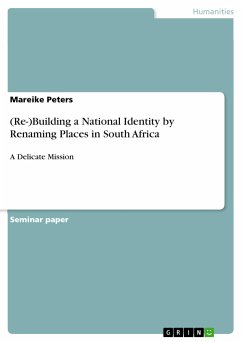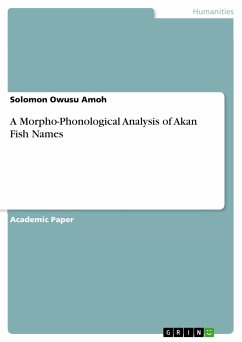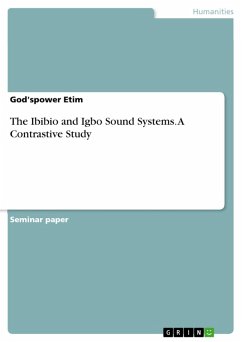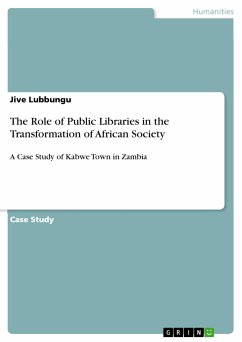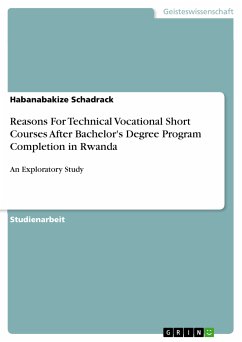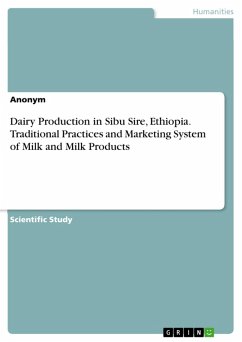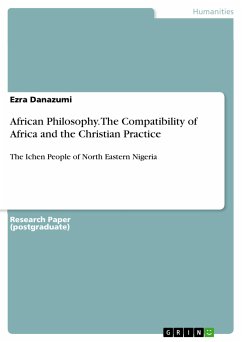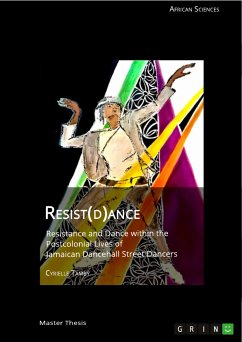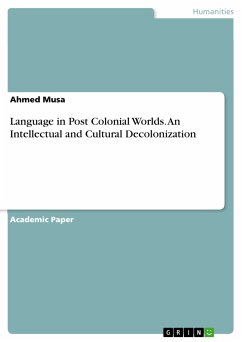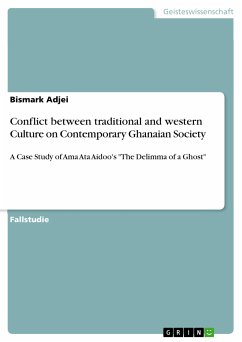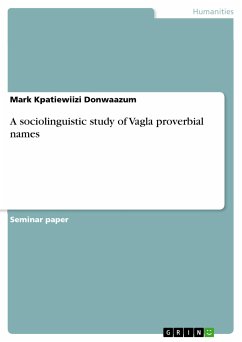
A sociolinguistic study of Vagla proverbial names (eBook, PDF)
Versandkostenfrei!
Sofort per Download lieferbar
Statt: 17,95 €**
15,99 €
inkl. MwSt. und vom Verlag festgesetzt.
**Preis der gedruckten Ausgabe (Broschiertes Buch)
Alle Infos zum eBook verschenkenWeitere Ausgaben:

PAYBACK Punkte
0 °P sammeln!
Seminar paper from the year 2020 in the subject African Studies - Linguistics, grade: A, , course: Sociolinguistics, language: English, abstract: This paper is a sociolinguistic study of Vagla proverbial names. It examines the importance of the Vagla proverbial names and how they affect the being of the individuals. Descriptive and qualitative approaches were adopted for the study, where the researcher, visited 12 towns and villages to listened and record Vagla names. The paper would also dwell on some day, appellation of Vagla clan heads, heads of family and the chief priests coupled with the...
Seminar paper from the year 2020 in the subject African Studies - Linguistics, grade: A, , course: Sociolinguistics, language: English, abstract: This paper is a sociolinguistic study of Vagla proverbial names. It examines the importance of the Vagla proverbial names and how they affect the being of the individuals. Descriptive and qualitative approaches were adopted for the study, where the researcher, visited 12 towns and villages to listened and record Vagla names. The paper would also dwell on some day, appellation of Vagla clan heads, heads of family and the chief priests coupled with the Vagla chiefs. As an ethnic group, the Vagla language is classed as the Gur-Gursi of the Savanna, Northern and Upper West regions respectively. The Vagla is one of the most adorable languages spoken in about 16 main towns and villages within the Damongo, Bole and Sawla/Tuna/Kalba district in the Savanna region. The Vagla, though a minority in the then Northern region, with the creation of the new 6 regions in 2019, is now second to Gonja language in the Savanna region, the Vagla tribe which falls within the northwest of the Northern region. The Vagla is made up of some related tribes such as the Sissala, Mo (D¿g), Tampulma and Chakali.
Dieser Download kann aus rechtlichen Gründen nur mit Rechnungsadresse in A, B, BG, CY, CZ, D, DK, EW, E, FIN, F, GR, HR, H, IRL, I, LT, L, LR, M, NL, PL, P, R, S, SLO, SK ausgeliefert werden.




